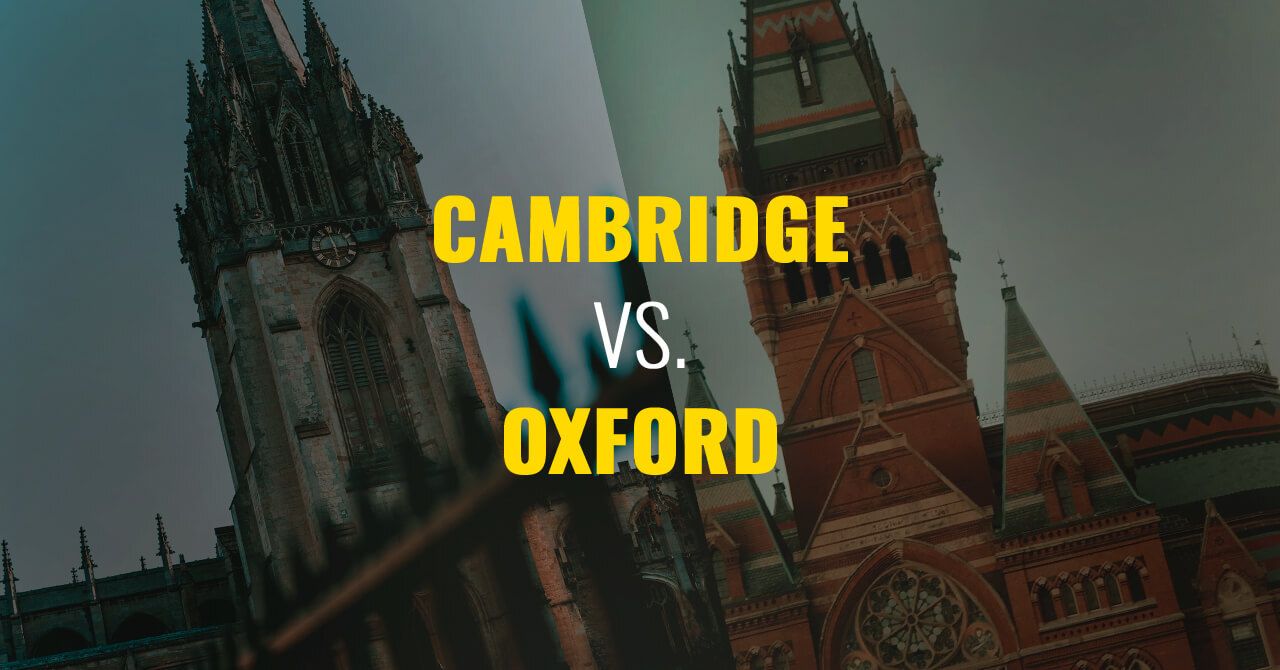
What It Means to Be a Cambridge or Oxford Student
There are some pieces of information about the two institutions, commonly known as Oxbridge, that can help you to end the impasse.
If being admitted into most of the old and famous Universities of the world has always been your dream, and you feel like the end of the road in choosing one or the other, maybe you should take a chair, cosy up, and read what I am just about to write.
There are some pieces of information about the two institutions, commonly known as Oxbridge, that can help you to end the impasse.
Comparing Oxford with Cambridge, apart from the famous annual Boat Race between the two Universities, could be challenging. I will try to explain to you what exactly it means to be Cambridge or Oxford student. Let’s start with the cities they are based in.
If it is the distance to London that does matter to you, both the cities take about an hour to get in.
Suppose history instead has an important impact on your decision. In that case, you should know that founded in 1096, Oxford is the oldest University in England, second only to the University of Bologna in Italy, the oldest university in the world. Cambridge, on the contrary, was born just two hundred years thanks to a dispute between some Oxford students and the residents of the city.
Conversely, you should opt for Cambridge if you are prone to amazing landscapes, nature lovers, peace supporters, in a few words Romanticism.
Although Cambridge city is smaller and more compact than Oxford, consider that in case you become a Junior Common Room (the way Cambridge refers to its student), you will enjoy punting on the river towards the Bridge of Sigh, trying authentic restaurants, tasting the best ice cream in the area and being a spectator of the amazing view castle from the hilltop next to it. Moreover, if you are curious and inquisitive or simply you have an enquiring mind favouring science, Cambridge is the place where DNA was discovered and where Charles Darwin, Steven Hawking, and Isaac Newton graduated in.
Oxford, on the other hand, is bigger than the first one, and it has more industries, but its architectural structure will make you feel like turning into a different age. It is on the way to the Cotswolds, Warwick Castle, and Stratford Upon Avon, so this could be an opportunity for stopping even here quickly and to kill two birds with a stone.
If you are literate or an artist, forget Cambridge because Oxford is the first-rate option. It boasts many famous names among its Fellows, like Lewis Carrol and JRR Tolkien, that wrote of the oldest library in Europe, the Bodleian Library, the Lord of Rings.
But the old universities have similarities. You cannot be admitted unless you have the A-level qualification in the subjects you are most interested in pursuing at the University level. Second both Oxford and Cambridge have a collegiate structure. Taking part in it means a selection different according to the involved College.
Both JCR and Junior Common Room must observe traditions. A dress code is required for some special events: matriculation when students officially become university members, formal dinners, and even during exams where subfusc is required to be dressed, at least in Oxford.
If you decide on a ride, be careful!!! In both universities, walking the grass is forbidden unless you are a professor, academics, etc.
The tutorial (as they say in Oxford) or supervision (as they say in Cambridge) system is the showplace of Oxbridge Education. Through the above-mentioned system, every week, you will find an available tutor to express any doubts or questions one-to-one in a close conversation. The choice would be too easy except for the fact that the two Universities don’t offer the same courses and the same selection process. In Cambridge, you can choose any subject that University offers. In Oxford, you should be very sure because the choice can be limited to the subject you showed interest in. As regards the interview, they are held both in mid-December with scores by February in addition, in Oxford, questions are more specific rather than in Cambridge, where the selection is generally quicker.What I feel to add to conclude is the best you can do is go and experience first-hand. There are some special events, especially in summer, where they are open to the public, and you can live through the cities and their university before any choice.
Hi, my name is Grazia. I am an Italian and English native speaker. I have a Master's degree in International Politics. I work in Aviation as a teacher. I will be happy to help you in learning.

